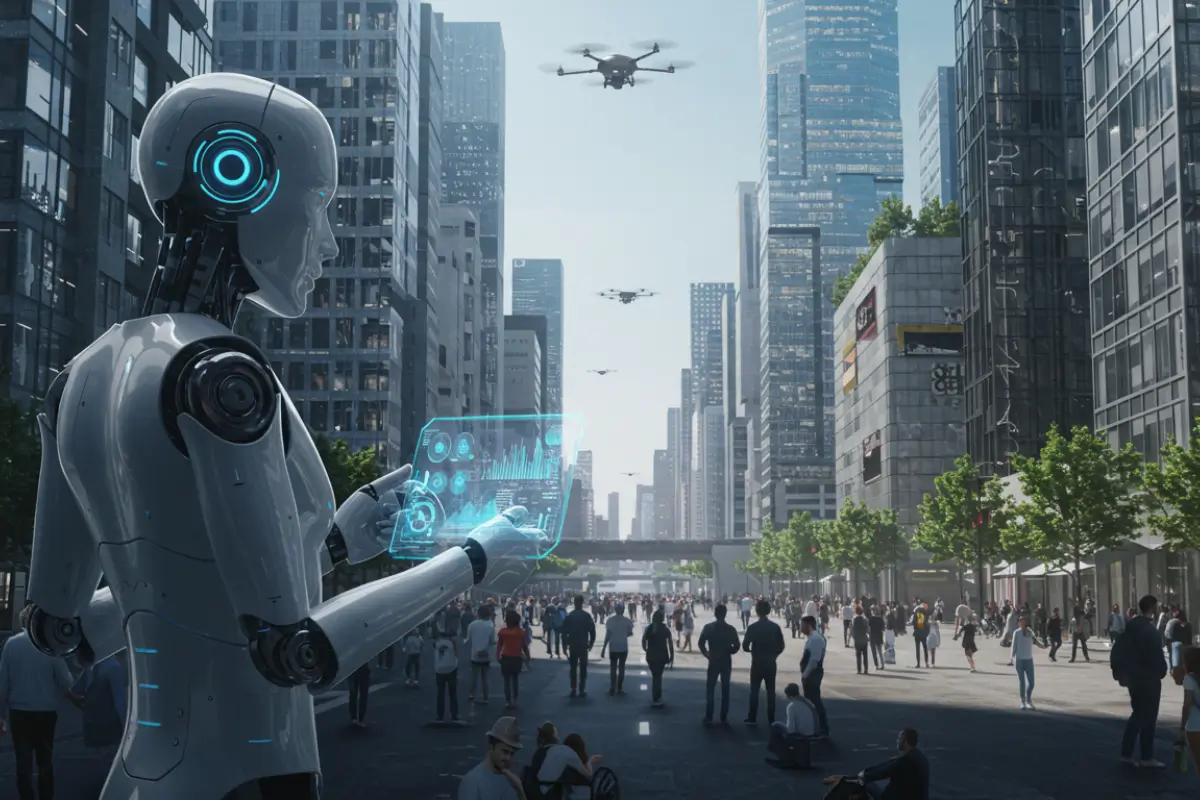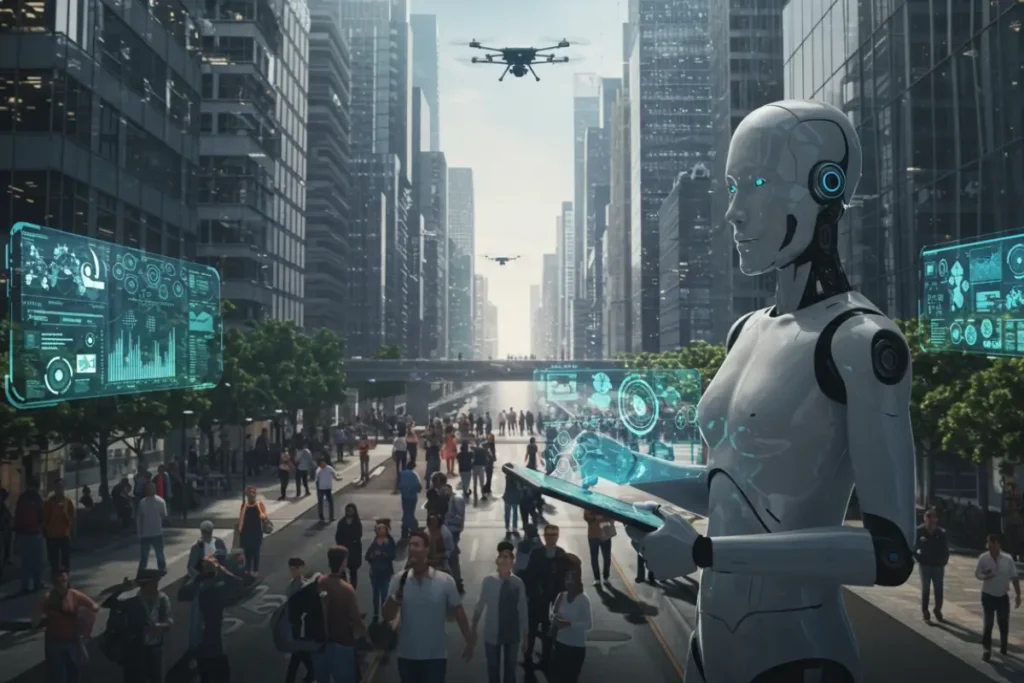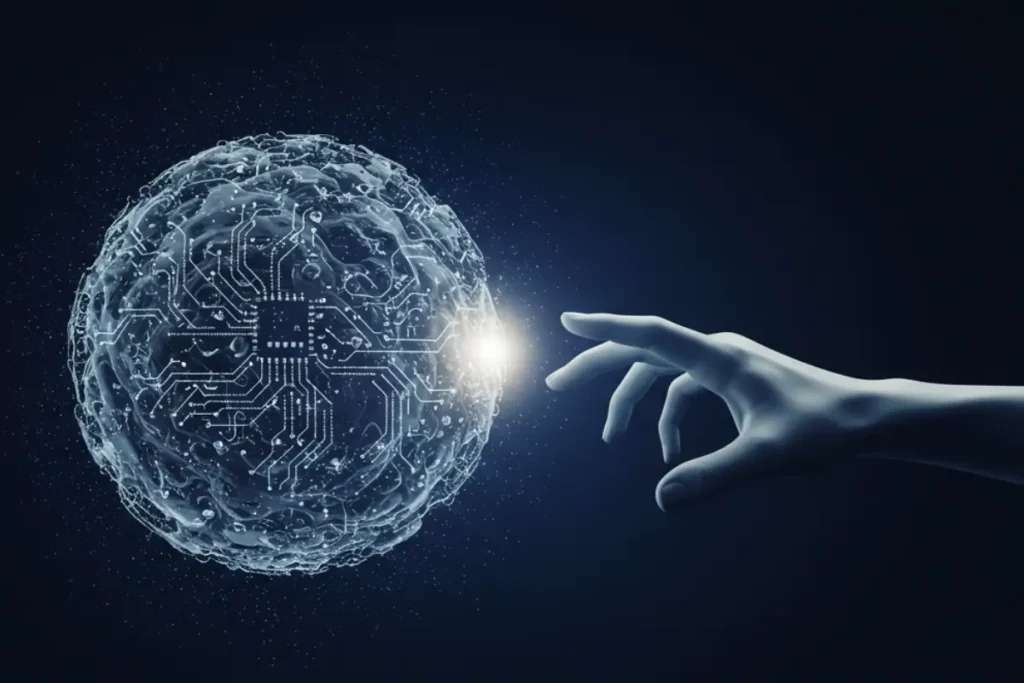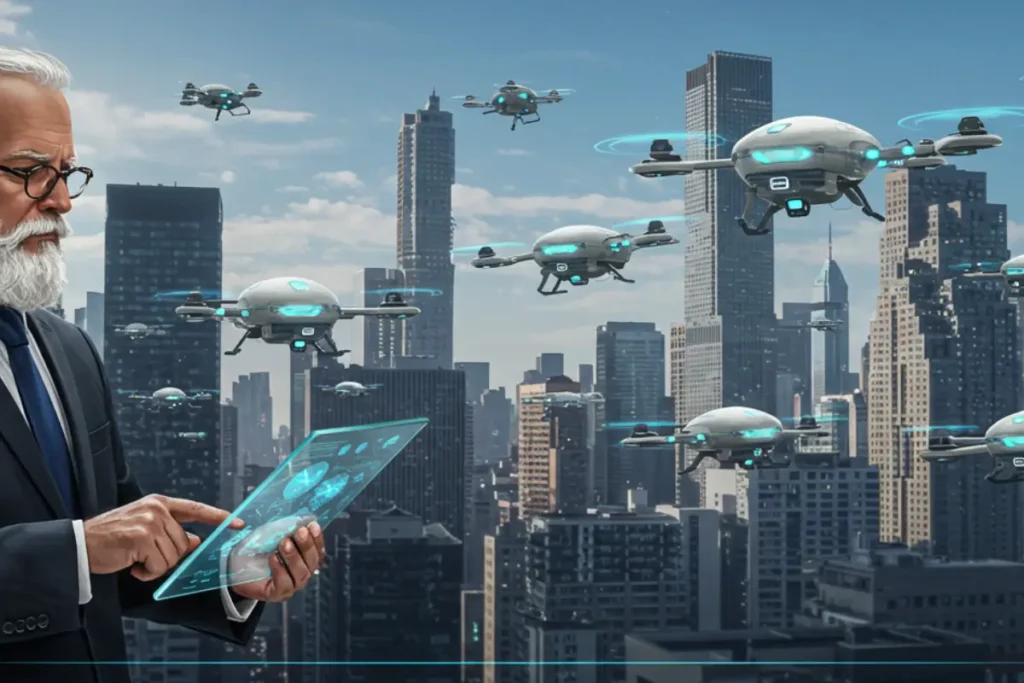AI and the Future of Human Rights
- May 1, 2025
- 0
Artificial Intelligence is no longer a futuristic concept—it’s a reality right now, but and the human rights ? Can be replaced ? Comes to me a pressing question:
Artificial Intelligence is no longer a futuristic concept—it’s a reality right now, but and the human rights ? Can be replaced ? Comes to me a pressing question:

Artificial Intelligence is no longer a futuristic concept—it’s a reality right now, but and the human rights ? Can be replaced ?
Comes to me a pressing question: how will AI impact our fundamental human rights? At Futuristic Intellect, we’ll see this critical conversation, exploring both the promise and the better experienc tha AI can provide, like AI in the realm of human dignity, freedom, and equality.
Quick Note: This article is part of our massive AI exploration series. 🧠 Check out other must-reads on FuturisticIntellect.com, like The Ethics of AI Consciousness and AI and the Evolution of Human Consciousness.
Artificial Intelligence is influencing every place of society—from healthcare to education, law enforcement to employment.
But this rapid adoption begs the question: are our human rights ready for an AI-powered world? As we train machines to think, decide, and even “feel,” the line between what’s ethical and what’s exploitative becomes increasingly blurry.
AI systems are now capable of facial recognition, voice cloning, and emotion detection. Governments and corporations alike are adopting surveillance tools that could easily be used for oppression if left unchecked.
This poses an existential threat to the right to privacy, freedom of expression, and even freedom of thought.
The current human rights frameworks, like the Universal Declaration of Human Rights, were drafted in a world without algorithms.
Do they still hold up when AI starts making life-altering decisions? That’s a discussion we need to have urgently.
AI also introduces biases through data training. If the data used to train AI is biased, the decisions the AI makes—about job candidates, loan approvals, or even legal outcomes—can reinforce systemic inequalities.
👉 For example, a study by MIT and Stanford found facial recognition software was less accurate when identifying people of color —a problem that could lead to wrongful arrests or denied services. Learn more on this Harvard article about algorithmic bias.

One of the most alarming aspects of AI’s development is its potential use in mass surveillance systems. Facial recognition, location tracking, and predictive policing powered by AI can turn entire cities into watchtowers.
While proponents argue these tools can improve safety, they also open the door to authoritarian control, silencing dissent and discouraging free speech.
Citizens may feel less inclined to protest, criticize governments, or even interact online due to the fear of being watched.
China’s social credit system is an example of AI-enabled surveillance in action, where citizens are rated based on their behavior.
This rating can affect job prospects, travel rights, and social mobility. Imagine this system applied globally—what freedoms would we be giving up?
In democratic countries, AI is increasingly used by law enforcement to predict crime hotspots and monitor online behavior. While the intention may be noble, the consequences can include over-policing of minority neighborhoods or misidentification.
📊 Table: AI in Surveillance vs. Human Rights Risk
| AI Tool | Purpose | Risk to Human Rights |
|---|---|---|
| Facial Recognition | Identify individuals | Misidentification, bias |
| Predictive Policing | Forecast crimes | Discrimination, profiling |
| Voice Recognition | Authenticate users | Invasion of privacy |
| Social Scoring Algorithms | Rate citizen behavior | Suppression of freedom |

It’s not all doom and gloom. When used ethically, AI can be a powerful ally in defending and promoting human rights.
NGOs and researchers are already leveraging AI to track human rights abuses, combat misinformation, and protect vulnerable communities.
AI can analyze massive data sets from satellite images, social media posts, and sensor networks to identify war crimes, environmental violations, or human trafficking routes.
This kind of insight would take humans weeks or months to process—but AI can do it in hours.
Organizations like Amnesty International and Human Rights Watch use AI to monitor conflicts and document abuses in regions with limited press freedom.
AI can also be used to encrypt communications and protect whistleblowers in repressive regimes.
Moreover, AI-driven translation tools are helping preserve endangered languages and facilitate cross-cultural communication, empowering marginalized groups. Learn more in our article: How AI is Helping Preserve Endangered Languages.
📌 Fun Fact: AI has been used to decode ancient texts and lost languages, opening doors to cultural understanding and heritage preservation. Here’s a great resource from Smithsonian Magazine.

To protect our future, we must develop international frameworks for AI ethics and digital human rights. AI knows no borders, and so too must our protections. What one country permits could affect others—imagine unregulated AI facial recognition developed in one country being exported globally.
The European Union is leading with the AI Act, aiming to classify AI systems by risk and impose strict regulations on high-risk applications.
But for AI governance to be truly effective, we need global collaboration, much like the Paris Agreement for climate change.
Big Tech also has a huge role to play. Tech companies must be held accountable for the AI systems they create, ensuring transparency, fairness, and the ability for people to challenge decisions made by algorithms.
We also need to push for digital rights to be recognized as human rights—including the right to data ownership, algorithmic transparency, and the ability to opt out of automated systems.
🧭 If you’re curious about how AI may shape future legal systems, check out our article: The Future of AI-Powered Governments.
The age of AI is here—and with it comes the power to either uplift or undermine human dignity. As we stride into this brave new world, it is our responsibility to ensure that technology serves humanity, not the other way around.
We must not sleepwalk into a future where our rights are gradually eroded by convenience, efficiency, or profit. Instead, we must champion transparency, ethics, and inclusivity in every AI system we build.
If AI is to be the greatest tool humanity has ever created, let it be one that amplifies justice, safeguards freedoms, and respects the uniqueness of every human being.
✨ If you liked this article, don’t forget to share it with your friends and leave a thoughtful comment below. It helps the conversation grow and lets us know what you want to read next. 🙌
➡️ Explore more articles on Futuristic Intellect and don’t forget to check out our tech partner blog Keyboards Technology, where we geek out on the tools that shape our future.